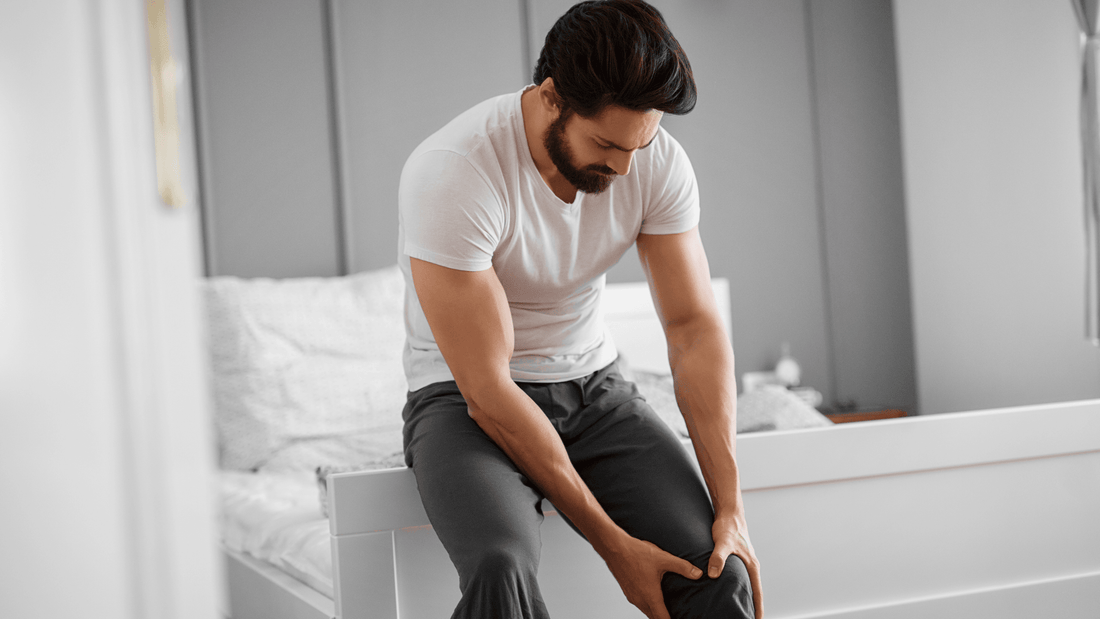
Knee pain in your 30’s – Causes and remedy
Priya PrakashShare

Ohh! I am not able to hit the gym every morning now. How will I dance wearing those stilettos?? My knee hurts!!
A knee pain can bring your life to a standstill, quite literally.
As many as 1 in 3 young adults experience knee pain at some time or the other in life. As we age, our body’s metabolism slows down, tissues deteriorate, contributing to the dull knee pain, muscle weakness, cartilage degradation, osteoporosis and obesity.
While this is the most common cause of knee pain in people above 60, more and more younger patients are been found seeing doctors for the same.
Why this terrible and dull pain in the knees in your 30’s??

- In the early age bracket, a ligament rupture, sporting or trauma injury is typically to blame. It can also be inflammatory or post traumatic osteoarthritis.
- Obesity- The more our body weight; the more is the pressure on our knees. As the knees support 5 to 7 times a person’s body weight, obesity can be a big cause for this knee pain
- Injury- Knee pain post injury often settles down after adequate rehabilitation and recovery
- Infection or fracture or dislocation
- Heavy physical activity which creates pressure on the knees. Also occurs in relatively inactive people who ramp up their activity too quickly.
- Constant sitting in a constrained area or sitting on knees for a prolonged period.
- Lifestyle of teenagers now a days involves too much of sitting which contributes to knee pain in the long run.
- Patellofemoral syndrome- It usually occurs due to an imbalance in the muscles that support your knee joint and help it move. When the thigh muscles or tendons around the knees are weak, there can be a strain and pressure created inside the knee joint. Over the time this area becomes inflamed, and before you realise, you start experiencing the dull pain.
- Lack of essential nutrients like Vitamin D, Calcium, and iron.
Simple remedies for knee pain
1. Calcium and Vitamin D rich diet
Regular exposure to early morning sunlight or even taking vitamin D and Calcium supplements may provide some relief. Supplements should be taken after consultation with a doctor or a Dietitian.
One must consume a high calcium diet like dairy products, Soya, Ragi, green leafy, almonds, walnuts, flax seeds on a regular basis. High calcium foods should be consumed along with a high vitamin C diet to increase Calcium absorption.
2. Ice
In case of any injury, ice application is the best suggested remedy. This reduces swelling and inflammation
3. Heat effect
If any old injury has resurfaced or even any kind of muscle pain, light massage with warm sesame oil, lime and ginger oil or mustard oil with turmeric added should be done.
3. Natural Painkillers
Many natural ingredients stored in our kitchen have magical healing and pain killing powers which we might not be aware of.
- Amla or gooseberry- It is very good for bone and joint health.
- Turmeric- Our ancient recipe of warm “haldi doodh” has its own antiseptic and healing properties which treats joint and bone pain
- Giloy - Giloy in the form of powder or tablets are easily available over the counter.
- Mehti seeds- Yellow Mehti laddus for winters are very well known to reduce knee pain. Methi seeds can be roasted and eaten or even soaked overnight.
- Tulsi- Tulsi leaves are very well known as anti-rheumatic and anti-spasmodic. It relieves joint pain associated with arthritis.
- Ginger- Topical application of Lime ginger oil reduces inflammation. Also, the well known “Adrak wali chai” or ginger milk has its own benefits.
4. A few lifestyle changes to be kept in mind
- During swelling, elevation is the key
- Physiotherapy can also tackle pain to some extent
- Keep those heels aside. Prefer wearing comfortable shoes
- Light yoga or light physical activity should be involved.
- Reduce weight if overweight
- Maintain a right posture while sitting, at work or even while driving
- Give adequate rest to your body. Cover knees properly in winters to avoid joint stiffness.
- Avoid involving the affected knee in day-to-day routine activities.
- Not to mention, avoid stress and smoking.
How do I know if it is serious??

Consider seeking medical help if knee pain is accompanied by swelling, stiffness, redness, tenderness around joint and fever. Also, if the pain interferes with your regular activities and sleep, it might be serious.
If you are having knee pain, it doesn’t mean that you should stop working out altogether. Always remember, exercise is crucial for maintaining arthritic joints.
A regular and healthy diet pattern, exercise, adequate sleep and maintain ideal body weight help preventing such conditions at a young age.
Although knee pain in early 30’s typically can be treated conservatively, you still might need a medical evaluation. Delaying it can further increase your risk of developing arthritis and other serious problems in future.
ABOUT THE AUTHOR

Sneha Jain, Dietician
Sneha is a Post graduate with specialization in Nutrition and Dietetics. She is a university topper and holds 5+ years of experience in Apollo hospitals, VLCC, slimsutra and first cry fit-kids . She has successfully counselled clients all over India for weight loss, weight gain, diabetes, hypertension, PCOD, hypothyroid, Pregnancy and lactation and growth charts for children. She has her own diet consultation e-clinic (diet_diariez)
She believes in customized diets and eating local and seasonal foods. Her counselling not only involves diet planning, but also lifestyle modification and stress relief strategies.

1 comment
thanks for sharing an amazing blog